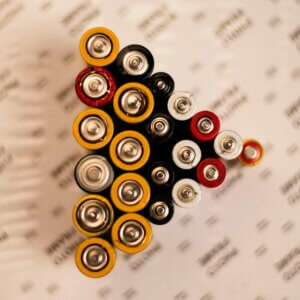U.S. Department of Energy Announces $14 Million to Increase Domestic Battery Recycling
The U.S. Department of Energy (DOE) has announced $14 million to increase consumer battery recycling and create a more sustainable domestic battery supply chain. Supported by the Bipartisan Infrastructure Law and managed by DOE’s Manufacturing and Energy Supply Chains Office (MESC), the selected projects will provide over 1,000 collection points across the country for spent batteries from consumer products, allowing consumers easy and free access to turn in old batteries and battery-containing devices and reduce e-waste.
“With hundreds of drop-off points across the country, we’re making it easier to recycle batteries from old cellphones and laptops — in-turn allowing us to reuse the critical minerals we would normally source from China for new clean energy manufacturing,” said U.S. Secretary of Energy Jennifer M. Granholm. “At DOE we’re excited to help create a circular, sustainable domestic supply chain.”

Recycling spent batteries provides our domestic industry with additional sources of necessary materials to make new batteries or other products, and retailers can play a vital role in making recycling accessible and easy for consumers. Consumer products including rechargeable batteries, cell phones, laptops, vacuums, and smartwatches contain critical minerals and materials such as nickel, lithium, and graphite that can be reused across the clean energy sector. Once batteries are no longer usable, consumers need places to deposit their spent batteries. Retailer store fronts visited by consumers are prime locations for battery collection points and in turn can promote more business for retailers.
Staples U.S. Retail, and battery retailer, Batteries Plus, were selected to receive over $7 million each to install portable consumer battery recycling drop-offs at their stores. The two companies will create over 1,000 new drop-off locations across the nation, many that will be located in disadvantaged communities.
For more information, visit energy.gov
Photo by mohamed abdelghaffar
